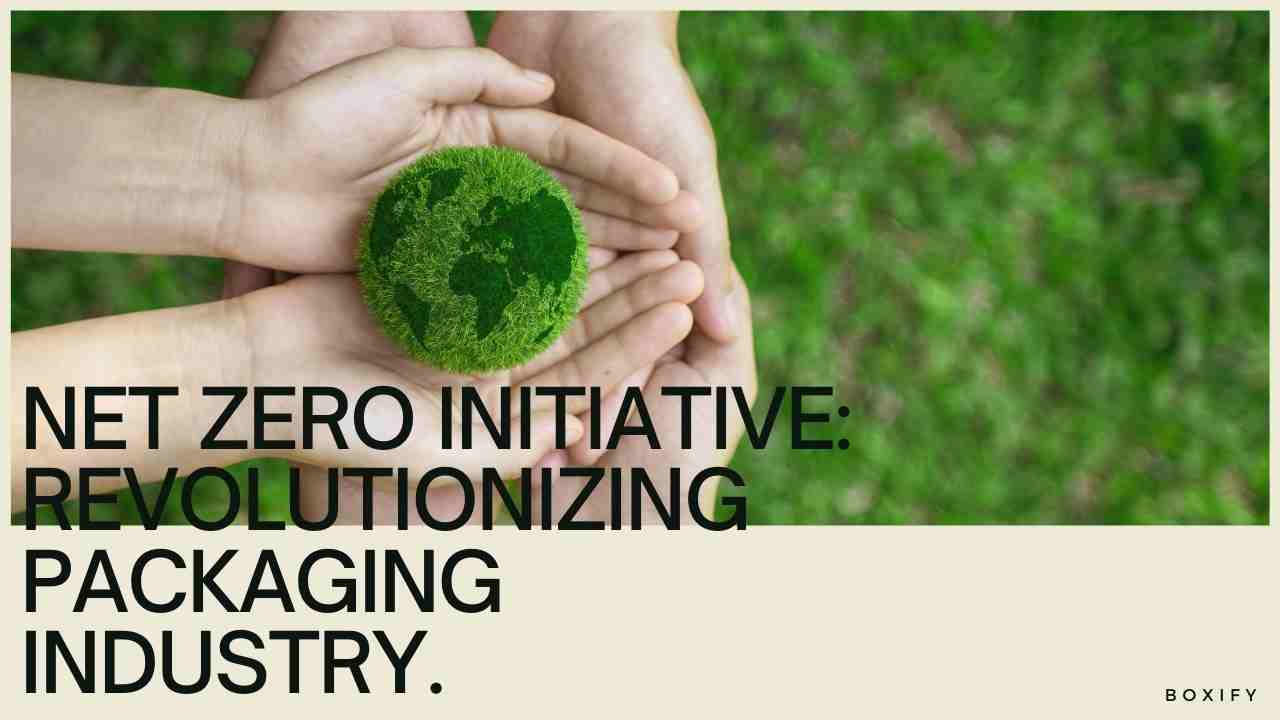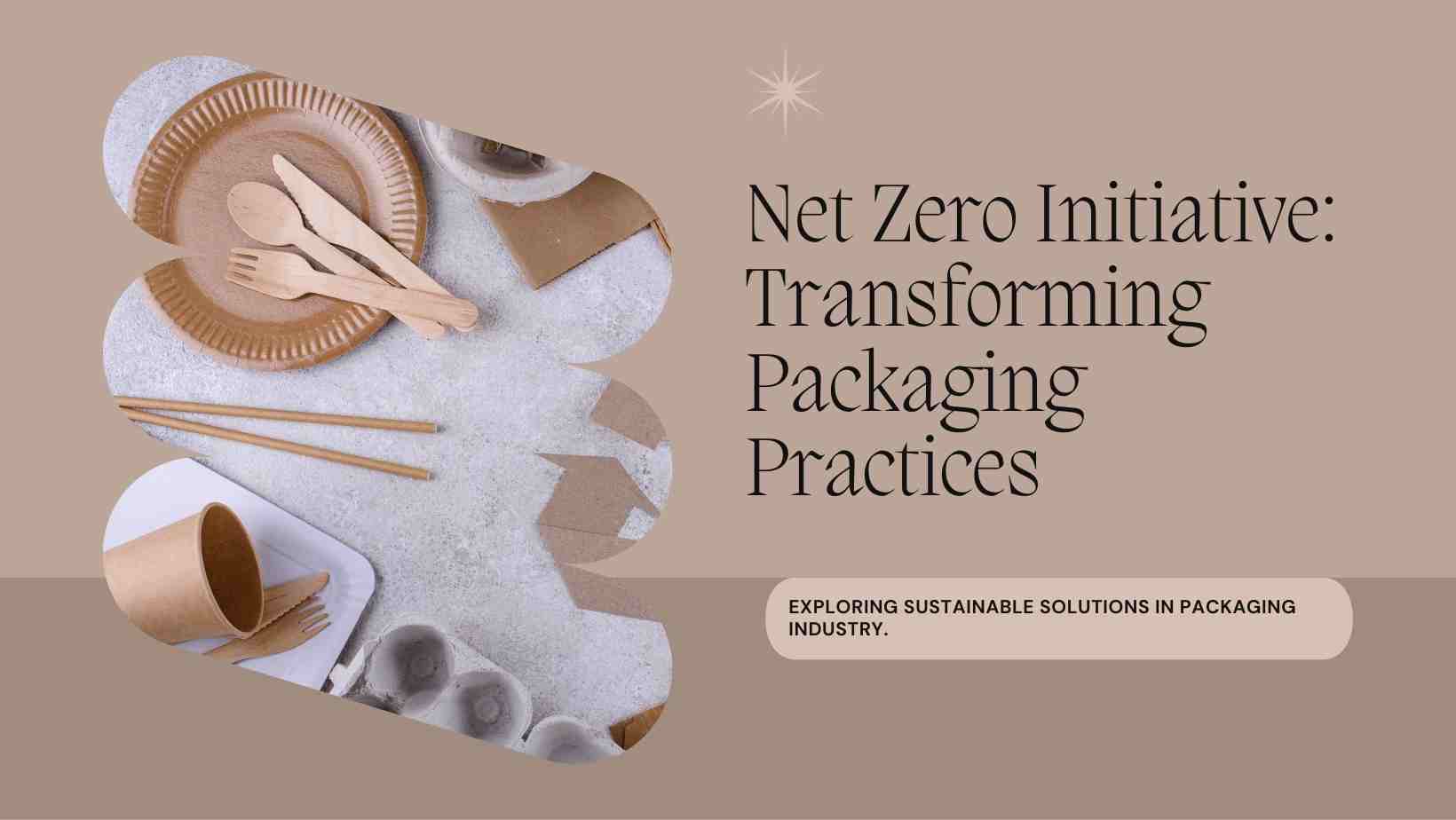Paving the Way for a Sustainable Future: How the Net Zero Initiative is Revolutionizing the Packaging Industry

In an era where sustainability is no longer a choice but a necessity, industries around the world are stepping up their efforts to reduce their carbon footprint and mitigate environmental impact. Among these industries, the packaging sector plays a significant role due to its widespread use and influence on consumer behavior. In this blog, we'll explore the Net Zero Initiative and how it's transforming the packaging industry, paving the way for a more sustainable future.
Understanding the Net Zero Initiative: The Net Zero Initiative is a global movement aimed at achieving net zero carbon emissions, where the amount of carbon emitted is balanced by the amount removed from the atmosphere. This ambitious goal is essential in the fight against climate change and requires a collective effort from businesses, industries, and individuals.
Why the Packaging Industry Matters: The packaging industry is a key player in the quest for sustainability due to its pervasive presence in our daily lives. From food packaging to shipping materials, packaging is everywhere, and its environmental impact is significant. The production and disposal of packaging materials contribute to greenhouse gas emissions, waste accumulation, and pollution, making it imperative for the industry to embrace sustainable practices.
The Role of the Net Zero Initiative in Packaging: The Net Zero Initiative provides a framework for the packaging industry to reduce its carbon footprint and transition towards more sustainable practices. This includes:
-
Reducing Packaging Waste: By adopting eco-friendly materials, optimizing packaging designs, and implementing recycling and reuse programs, the packaging industry can minimize waste generation and promote circular economy principles.
-
Investing in Renewable Energy: Transitioning to renewable energy sources such as solar and wind power can help packaging manufacturers reduce their reliance on fossil fuels and decrease their carbon emissions.
-
Promoting Innovation: The Net Zero Initiative encourages innovation in packaging technologies and materials, driving the development of sustainable alternatives to traditional packaging materials such as plastics. From compostable bioplastics to recyclable paper-based packaging, numerous innovations are reshaping the packaging landscape.
-
Collaborating Across the Supply Chain: Achieving net zero emissions requires collaboration across the entire packaging supply chain, from raw material suppliers to manufacturers, retailers, and consumers. By working together and sharing best practices, stakeholders can accelerate progress towards sustainability goals.
The Benefits of Embracing Sustainability: Embracing sustainability not only benefits the environment but also presents numerous opportunities for the packaging industry. By adopting sustainable practices, companies can:
-
Enhance Brand Reputation: Consumers are increasingly conscious of environmental issues and prefer brands that demonstrate a commitment to sustainability. By aligning with the Net Zero Initiative, packaging companies can enhance their brand reputation and attract environmentally conscious consumers.
-
Drive Innovation: Sustainability drives innovation, spurring the development of new technologies, materials, and processes that reduce environmental impact and improve efficiency.
-
Reduce Costs: Sustainable practices such as waste reduction, energy efficiency, and resource optimization can lead to cost savings for packaging companies in the long run.

The Net Zero Initiative is a catalyst for change in the packaging industry, inspiring companies to embrace sustainability and work towards a carbon-neutral future. By reducing carbon emissions, promoting innovation, and collaborating across the supply chain, the packaging industry can play a pivotal role in mitigating climate change and creating a more sustainable world for future generations. Let's join forces and pave the way for a brighter, greener future through the Net Zero Initiative.